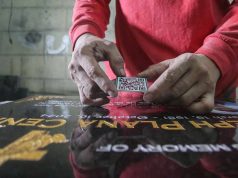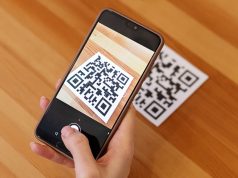China-based company WaliMai has developed RFID-based anti-counterfeit labels that are fixed to a product to let consumers know for certain that it is genuine. Matthew Stock reports.
Counterfeiting in China is big business. Knock-off goods range from designer handbags and cosmetics, to food and medicines.
The 2008 tainted milk scandal caused domestic consumers to be wary of made-in-China milk products, leading to a rise in imports from the West. Those imports became a prime target for counterfeiters. The WaliMai anti-counterfeit label aims to help parents know for sure their baby formula is genuine.
“The way it works for the consumer is that they come to the shop, they take their mobile phone, they touch the label with their mobile phone. It takes about 2 seconds for the confirmation and re-writing of the codes. And then the first piece of information that they get is that it’s actually authentic. Then to add on to that there’s all the information on the logistic supply chain so they can see where the product was produced, where it was packed, where it entered the country that they’re in – in our case it’s China – when it was checked in our warehouse, and also they can see their own scan,” Alexander Busarov, co-founder & CEO of Walimai, saying.
WaliMai says they have ‘banking-level’ security inside. The embedded RFID chip has a re-writable memory, changing with every scan. They say this makes it virtually impossible to counterfeit. Each label is single use; and is destroyed when the product is opened.
“There’s an antenna within the label which gets torn and it’s very difficult to put it back together; you basically need a lab for that which acts as a deterrent for a counterfeiter to actually deal with it,” Busarov, saying.
WaliMai’s smart label will soon be used on bottles of alcohol – another sector battling Chinese counterfeiters. The company hopes the technology could one day help tackle the huge global problem of counterfeit pharmaceuticals.









